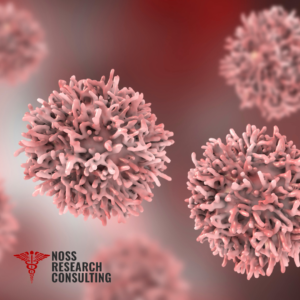Tedopi® is a novel T-cell epitope-based cancer vaccine targeting five tumor-associated antigens, aimed at expanding tumor-specific T-lymphocytes in HLA-A2 cancer patients. As an off-the-shelf immunotherapy, it has been evaluated in the Phase 3 Atalante-1 trial for patients with non-small cell lung cancer (NSCLC) who have failed immune checkpoint inhibitor (ICI) treatment.
Compelling Phase 3 Clinical Data
Tedopi® is the first cancer vaccine to demonstrate clinically meaningful efficacy, improved safety, and enhanced quality of life as a monotherapy compared to chemotherapy in advanced or metastatic NSCLC patients post-ICI failure. The trial, detailed in the Annals of Oncology, highlighted Tedopi®’s ability to improve overall survival and maintain a better safety profile in HLA-A2 positive patients.
Main Results
Efficacy:
- Overall Survival: Tedopi® reduced the risk of death by 41% with a hazard ratio (HR) of 0.59 (95% CI: 0.38, 0.91). The one-year survival rate was 44.4% for Tedopi® versus 27.5% for chemotherapy, with a median overall survival of 11.1 months for Tedopi® compared to 7.5 months for standard of care (SoC) (p=0.017).
- Post-Progression Survival: Patients in the Tedopi® arm experienced significantly longer survival post-progression (7.7 months vs. 4.6 months; p=0.004, HR=0.46).
Safety and Quality of Life:
- ECOG Performance Status: The time to deterioration of general health condition (ECOG score) was significantly longer for Tedopi® (9.0 months vs. 3.3 months; p=0.006; HR=0.43).
- Quality of Life: Patients reported better quality of life with Tedopi® (p=0.04), with improvements in global health status (p=0.045) and role functioning (p=0.025).
- Adverse Events: Tedopi® had a better tolerance profile, with fewer severe adverse events (38% vs. 68% in SoC, p<0.001).
These positive outcomes in a well-defined patient population underscore Tedopi®’s innovative mechanism of action, which directly activates tumor-specific T-cells, in contrast to ICIs that release immune response brakes.
Ongoing and Future Trials
Tedopi® is also under investigation in several Phase 2 trials:
- NSCLC in combination with Opdivo® (nivolumab): Sponsored by the Italian Foundation FoRT, evaluating Tedopi® with nivolumab or chemotherapy versus chemotherapy alone.
- Pancreatic Cancer: Sponsored by GERCOR, assessing Tedopi® with FOLFIRI chemotherapy versus FOLFIRI alone.
- Ovarian Cancer in combination with Keytruda® (pembrolizumab): Sponsored by ARCAGY-GINECO, comparing Tedopi® alone or with Keytruda® versus best supportive care.
Future Directions
A confirmatory Phase 3 study with a companion diagnostic strategy is planned to support Tedopi®’s registration as a potential new standard of care for second-line treatment in NSCLC patients with secondary resistance to ICIs.
Source: Tedopi



0 Comments